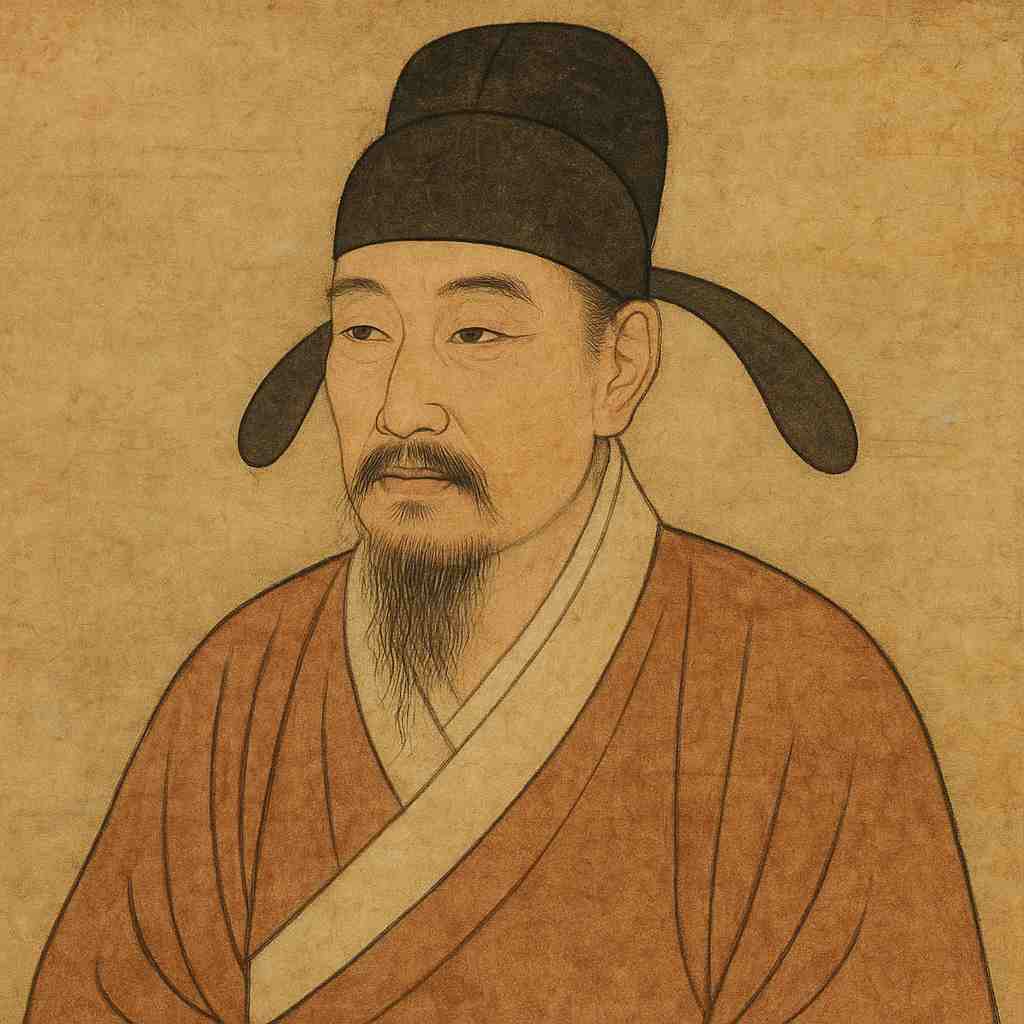The Song of Ch'ŏyong (Korean)
Ch'ŏyong
c. 800 to c.900

Want to track your favorites? Reopen or create a unique username. No personal details are required!
서울 밝은 달밤에
밤새도록 노닐다가
들어가 잠을 보니
다리가 넷이로다.
둘은 내 것인데
둘은 뉘 것인가?
원래 내 것인데
빼앗아 가신다면
노여움이 없어라.
Ch'ŏyong's The Song of Ch'ŏyong
"The Song of Ch'ŏyong" is a Korean sijo poem attributed to Ch'ŏyong, a figure in Korean folklore who, according to legend, was one of the sons of the Dragon King of the Eastern Sea. This poem’s structure and message capture the essence of sijo, a traditional Korean poetic form known for its balanced structure and subtle emotional expressions. The poem explores themes of loss, acceptance, and the transient nature of possession and attachment. In this analysis, I will examine the thematic and symbolic significance of Ch'ŏyong's reaction to betrayal and discuss how the poem's imagery and structure support its philosophical message.
Imagery of Moonlight and Wandering
The opening lines, "In the bright moonlight of Seoul, / I wandered all night long," set the scene with a tranquil image of moonlit Seoul. The brightness of the moon connotes clarity and insight, contrasting with the more uncertain events that unfold. The act of wandering "all night long" might symbolize the character's openness and trust, suggesting a carefree nature that could leave him vulnerable upon his return home. Moonlight traditionally symbolizes both romance and an ephemeral quality, as it is beautiful but temporary—perhaps an indication of the impermanence that becomes central to the poem.
Discovery of Betrayal
Ch'ŏyong’s discovery of "four legs in my bed" creates an ambiguous, disconcerting moment. This simple yet striking image introduces a complex mix of betrayal, confusion, and reflection. The metaphor of "four legs" (representing two people) in his bed suggests an intimate betrayal: Ch'ŏyong has found his spouse with another lover. Yet, instead of reacting with anger or violence, he engages in a calm contemplation of the situation.
In the following lines, "Two are mine, / but whose are the other two?" Ch'ŏyong’s phrasing is both rhetorical and genuine, expressing a curiosity that reveals his disposition to process and question rather than immediately condemn. By framing his discovery with questions, Ch'ŏyong allows the reader to feel his sense of disorientation and wonder at this unexpected reality.
Themes of Ownership and Impermanence
Ch'ŏyong’s reflection, "They were once mine, / but if they’ve been taken away, / I shall harbor no anger," introduces the poem’s central themes of possession and acceptance. He acknowledges that although "they were once mine," attachment to such ideas of ownership is ultimately futile. This idea resonates deeply with Buddhist teachings on non-attachment and the acceptance of change, which permeate many East Asian cultural and philosophical traditions. Rather than asserting control or reclaiming ownership, Ch'ŏyong embraces the impermanence of his relationship.
This acceptance of loss without anger or retaliation highlights Ch'ŏyong’s elevated spiritual and philosophical state. In refusing to harbor anger, Ch'ŏyong not only exemplifies a noble response to betrayal but also reflects an understanding that clinging to possession, whether it be people or material items, leads to suffering. His calm acceptance suggests a belief that such attachments are illusory and transient.
Structural and Rhythmic Analysis
The poem’s structure supports its meditative tone. Each line is concise and balanced, characteristic of sijo’s form, which often divides into a three-part structure—introduction, development, and resolution. The repetition of phrases like "they were once mine" underscores the inevitability of impermanence and the futility of possessiveness. The simplicity of the language enhances the poem’s philosophical weight, giving Ch'ŏyong’s response a timeless, universal quality that transcends cultural boundaries.
Additionally, the rhythm of the poem mimics a calm, measured breath. Each line moves slowly, giving readers a sense of Ch'ŏyong’s internal tranquility, as if he is pausing to reflect with each new revelation. This deliberate pace reinforces his composed and contemplative nature, deepening the reader's understanding of his profound acceptance.
Conclusion
"The Song of Ch'ŏyong" is a powerful poetic meditation on loss, acceptance, and the nature of attachment. By choosing to forgo anger in response to betrayal, Ch'ŏyong exemplifies a grace and wisdom that encourages readers to consider their own attachments and responses to loss. The poem’s simplicity belies its depth, conveying a message that is as much a moral lesson as it is an emotional expression. Through the tranquility of moonlit Seoul, Ch'ŏyong’s measured response becomes a poignant reminder of the beauty found in letting go and the strength in acceptance. This poetic narrative, though specific in its cultural origin, offers universal insight into the resilience of the human spirit.
This text was generated by AI and is for reference only. Learn more
Want to join the discussion? Reopen or create a unique username to comment. No personal details required!



Comments
No comments yet. Be the first to comment!